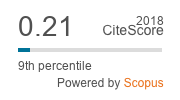Efeitos do sexo do protagonista na avaliação de diferenças e o gênero no julgamento moral
Palabras clave:
Gênero, Moralidade, Julgamento moralResumen
A metodologia kohlbergiana para avaliar o raciocínio moral foi repetidamente acusada de sexismo, porque os protagonistas dos dilemas eram homens. Essas críticas não consideram o género dos sujeitos. Este estudo verifica a influência do sexo do protagonista do dilema no julgamento moral de homens e mulheres andróginos, tipificados e indiferenciados. Foram testados 180 estudantes universitários, 90 de cada sexo, 60 de cada gênero, entre 18 e 25 anos de idade, com o BSRI e o MJI em duas formas: protagonista masculino e feminino (metade com o sexo igual ao seu e o restante diferente). Uma ANOVA revelou que o sexo do protagonistado dilema não produz diferenças significativas no julgamento moral entre os gêneros, ou entre os sexos. A falta de um efeito significativo indica que quando o raciocínio moral é avaliado pelo MJI, o sexo do protagonista não contribui para estabelecer diferenças entre os sexos ou entre os gêneros.
Descargas
Citas
Consulting and Clinicai Psychology, 42(2),155-162.
Bem, S. L. (1975). Sex role adaptability: one consequence of psychological
androgyny. Journal of Personality and Social Psychology, 31(4), 634-643.
Bem, S. L. (1977). On the utility of alternative procedures for assessing psychological
androgyny. Journal of Consulting and Clinicai Psychology, 45(2), 196-205.
Bem, S. L. (1981). Gender schema theory: a cognitive account of sex typing.
Psychological Review, 88, 354-364.
Bem, S. L. & Lenney, E. (1976). Sex typing and the avoidance of cross-sex behavior.
Journal of Personality and Social Psychology, 33(1), 48-54.
Biaggio, A. M. B. (1984). Pesquisas em psicologia do desenvolvimento e da
personalidade. Porto Alegre: Ed. da Universidade.
Block, J. H. (1973). Conceptions of sex role: some cross-cultural and longitudinal
perspectives. American Psychologist, 28, 512-526.
Bussey, K. & Maughan, B. (1982). Gender differences in moral reasoning. Journal of
Personality and Social Psychology, 42(4), 701 -706.
Cook, E. P. (1985). Psychological androgyny. New York: Pergamon.
David, C. (1975). La bissexualité psychique. Revue Française de Psychanalyse, 39,
695-856.
Denmark, F., Russo, N. F., Frieze, I. M. & Sechzer, J. A. (1988). Guidelines for
avoiding sexism in psychological research: a report of the Ad Hoc Committee on
nonsexist research. American Psychologist, 43(7), 582-585.
Donenberg, G. R. & Hoffman, L. W. (1988). Gender differences in moral development.
Sex Roles, 78(11 /12), 701 -717.
Freeman, S. J. M. & Giebink, J. W. (1979). Moral judgment as a function of age, sex,
and stimulus. The Journal of Psychology, 102, 43-47.
Froming, W. J. (1978). The relationship of moral judgment, self-awareness, and sex to
compliance behavior. Journal of Research in Personality, 12, 396-409.
Garwood, S. G., Levine, D. W. & Ewing, L. (1980). Effect of protagonisfs sex on
assessing gender differences in moral reasoning. Developmental Psychology,
16(6), 677-678.
Gilligan, C. (1979). Woman's place in man's life cycle. Harvard Educational Review,
49(4), 431-446.
Gilligan, C. (1982). In a different voice: psychologycal theory and women's
development. Cambridge: Harvard Univ. Press.
Greeno, C. G. & Maccoby, E. E. (1986). How different is the "different voice"?
Signs(Winter), 310-316.
Halpern, D. F. (1985). The influence of sex-role stereotypes on prose recall. Sex roles,
12(3/4), 363-375.
Hurtig, M. C. (1982). L'elaboration socialisée de la différence des sexes. Enfance, 4,
283-302.
Kohlberg, L. (1966). A cognitive-developmental analysis of childreiVs sex-role
concepts and artitudes. Em E. Maccoby (Org.). The development of sex
differences, Stanford: Stanford Univ. Press. 1:82-173.
Kohlberg, L. (1971). "From Is to Ought: How to commit the naturalistic fallacy and get
away with it in the study of moral development". Em: T. Mischel (Org.). Cognitive
Development and Epistemology. New York: Academic Press.
Kohlberg, L. (1981). Essays on moral development: The Philosophy of moral
development. Volume 1,1a ed. San Francisco: Harper e Row.
Kohlberg, L. (1984). Essays on moral development: The Psychology of moral
development. Volume 2,1a ed. San Francisco: Harper e Row.
Kohlberg, L, Colby, A., Gibbs, J. & Dubin, B. S. (1978). Standard form scoring
manual. Cambridge, Mass: Harvard Press.
Koller, S. H. (1990). Valores morais e desempenho de papéis sexuais. Anais do III
Simpósio de Intercâmbio Científico da Associação Nacional de Pesquisa e
Pós-graduação em Psicologia, pp. 349-352.
Maccoby, E. E. & Jacklin, C. N. (1974). The Psychology of sex differences. Stanford:
Stanford Press.
Martin, C. L. & Halverson, C. F. (1981). A schematic processing model of sex typing
and stereotyping in children. Child Development, 52, 1119-1134.
Myers, J. L. (1979). Fundamentals of experimental design. Boston: Allyn and Bacon.
Oliveira, L. S. O. (1982). Masculinidade feminilidade androginia. Rio de Janeiro:
Achiamé.
Orchowsky, S. J. & Jenkins, L. R. (1979). Sex biases in the measurement of moral
judgment. Psychologycal Reports, 44, 1040.
Pedersen, D. M. & Bond, B. L. (1985). Shifts in sex-role after a decade of cultural
change. Psychological Reports, 57, 43-48.
Pleck, J. H. (1975). Masculinity-femininity: current and alternative paradigms. Sex
Roles, 1, 161-178.
Pratt, M. W. & Royer, J. M. (1982). When rights and responsabilities don't mix: sex
and sex-role patterns in moral judgment orientation. Canadian Journal Behavior
Science, 14, 190-204.
Rebecca, M., Hefner, R. & Olechansky, B. (1976). A model of sex-role
transcendence. Journal of Social Issues, 32, 197-206.
Rodrigues, A. (1988). Psicologia Social. Petrópolis: Vozes.
Spence, J. T. & Helmreich, R. (1981). Androgyny versus gender schema: a comment
on Berrfs gender schema theory. Psychologycal Review, 88(4), 365-368.
Spence, J. T., Helmreich, R. & Stapp, J. (1975). Ratings of self and peers on sex role
attributes and their relation to self-esteem and conceptions of masculinity and
femininity. Journal of Personality and Social Psychology, 32(1), 29-39.
Unger, R. K. (1979). Toward a redefinition of sex and gender. American Psychologist,
54(11), 1085-1094.
Unger, R. K. (1989). Representations social constructions of gender. New York:
Baywood.
Walker, L. J. (1984). Sex differences in the development of moral reasoning: a criticai
review. Child Development, 55, 677-691.
Walker, L. J. (1986). Sex differences in the development of moral reasoning: a
rejoinder to Baumrind. Child Development, 57, 522-526.
Wilson, S. L. (1977). The relationship between sex role development and moral
judgment. Psychological Reports, 42, 966.



